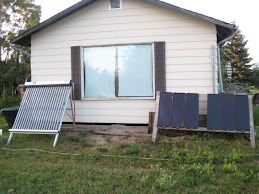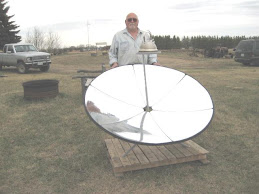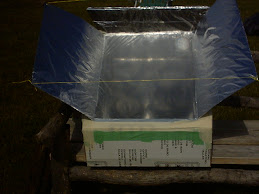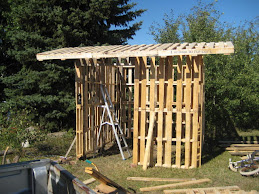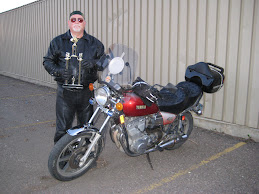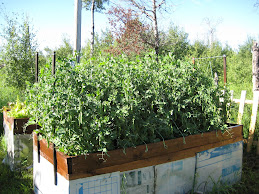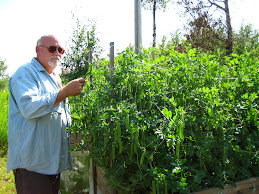Yesterday I was listening to the radio. Charles Adler the radio talk show host was interviewing a guest and talking about cheapskates. I have to admit I had a pretty good laugh about some of the silly things we heard that the cheapskates did.
Today I want to clarify something. I am a Cheap-O, I am NOT a cheapskate.
My definition of a Cheap-O, is someone that is reserved and controlled in how they spend money. Who expects and gets full value out of every dollar. Who finds uses for what would otherwise be discarded items. Someone who lives in a sustainable way. Someone that knows that they, not the government are the best one to make the choices about their life and how they live. Make sure you read my article on "Being Cheap is Greener then Being Green."
I am the one laughing, as a Cheap-O I have money left over to give to charity. I can cut back on the hours I have to work to make ends meet. I can keep my money to speed on things that bring me satisfaction, as I am not speeding it on trivial things. I find pleasure in doing things for myself. In learning new skills, and in spending time doing the things I want to be doing and watching our grandkids grow up.
Don't ever confuse being a Cheap-O with a cheapskate. We are not cut from the same cloth.
Cheap-O Economics
October 14, 2009
Turn It Off
Turn it Off.
Yes that is one of the best ways to save money. Turn the lights off when you are not using them. Turn off the TV if you are not watching it. Turn off the computer at night, you can actually damage the batteries on your lap top if you leave it plugged in all the time, as it is in charge mode when plugged in.
Don't just turn off the TV. unplug it or at least use a powerbar so you can totaly shut it off. It will use up to 85% of the power when turned off (it is really in standby mode not shut off) as it does when turned on. The same goes for the VCR / DVD / CD player, you have unplug them to fully shut them off.
When I visit friends I am amazed to walk through the house and find lights, radios, tvs, and a host of other electronic items turned on ....and no one around useing them. My grandkids seem to think that you have to have the light on in the bathroom - in the middle of the afternoon. You can manage very nicely without the lights on when the sun is shining and it is daylight.
I wince when I see houses with all the outside lights on, and lights on in every room of the house.
As a society we take electricity for granted and only think about the cost once a month when we pay the power bill. Well our local power company has announced that in order to meet increased demand and the capital cost of replacing old equiptment and upgrading infastructor, the cost of power is going to more then DOUBLE over the next ten years.
It is time to really take a serious look at how you are using power, the ways you can cut back on the amount of power you use.
Things you can do to decrease your power usage.
Turn off the lights
Use Compact bulbs Fluorescent or LED lights
Use timers or motion detectors on outside lights
Use power bars to totally turn off TV, DVD, CD, microwave, and other electronics
Do you really need that many TVs?
Eat by candle light
Set your hot water tank temp lower
If you are buying new appliances look for Energy Star ones that use the least power
Turn the heat in your house down a couple of degrees
Everything will add up as savings for you.
Cheap-O Economics
Yes that is one of the best ways to save money. Turn the lights off when you are not using them. Turn off the TV if you are not watching it. Turn off the computer at night, you can actually damage the batteries on your lap top if you leave it plugged in all the time, as it is in charge mode when plugged in.
Don't just turn off the TV. unplug it or at least use a powerbar so you can totaly shut it off. It will use up to 85% of the power when turned off (it is really in standby mode not shut off) as it does when turned on. The same goes for the VCR / DVD / CD player, you have unplug them to fully shut them off.
When I visit friends I am amazed to walk through the house and find lights, radios, tvs, and a host of other electronic items turned on ....and no one around useing them. My grandkids seem to think that you have to have the light on in the bathroom - in the middle of the afternoon. You can manage very nicely without the lights on when the sun is shining and it is daylight.
I wince when I see houses with all the outside lights on, and lights on in every room of the house.
As a society we take electricity for granted and only think about the cost once a month when we pay the power bill. Well our local power company has announced that in order to meet increased demand and the capital cost of replacing old equiptment and upgrading infastructor, the cost of power is going to more then DOUBLE over the next ten years.
It is time to really take a serious look at how you are using power, the ways you can cut back on the amount of power you use.
Things you can do to decrease your power usage.
Turn off the lights
Use Compact bulbs Fluorescent or LED lights
Use timers or motion detectors on outside lights
Use power bars to totally turn off TV, DVD, CD, microwave, and other electronics
Do you really need that many TVs?
Eat by candle light
Set your hot water tank temp lower
If you are buying new appliances look for Energy Star ones that use the least power
Turn the heat in your house down a couple of degrees
Everything will add up as savings for you.
Cheap-O Economics
October 3, 2009
Welcome to Cheap-O Economics
Welcome to the Cheap-O Economics Blog
I am hoping that I will be able to provide a contrary and thought provoking look at money and how you earn it, how you spend it and what you save, invest and how you plan for retirement.
I have always looked at all these issues from many different angles. But it wasn't until I started to write articles for www.homestead.org that I formalized my thoughts. Out of the original article I have written several others relating to how to be a Cheap-O.
I am hopeing to provide some ideas for some homegrown, practical, cut to the chase, try to make sense, ways to become a cheap-o.
Often the ideas and the approach will run contrary to conventional wisdom. I hope that more then anything else I will challenge you to reexamine your ideas, and that you will question the experts and really take the time and effort to find out how it applies in your case.
Not everything I suggest or observe will apply to you. But take the time to read on. You may be surprised that you may start to think twice or three times about your spending choices or how and if you invest. You may find that you are questioning your friends and offering ideas that might be a bit off the wall to them.
If that is the case welcome to the club. The club of people that think for themselves and who look behind the headlines for the underlying story. People that make their choices based on what is important to their family and what works for them. People that are not the sheep, but who are the sheep dog. People who believe that you need to depend on yourself not on the government to look after you. People who are getting prepared for and capable of dealing with what ever life or mother nature throws at them. People that are returning to the idea of living sustainable and that happiness lays not in more things but in spending your time doing what you want.
I hope you will visit here often and that I can challenge you to think about how you think.
Jan R. Cooke
Cheap-O Economics
I am hoping that I will be able to provide a contrary and thought provoking look at money and how you earn it, how you spend it and what you save, invest and how you plan for retirement.
I have always looked at all these issues from many different angles. But it wasn't until I started to write articles for www.homestead.org that I formalized my thoughts. Out of the original article I have written several others relating to how to be a Cheap-O.
I am hopeing to provide some ideas for some homegrown, practical, cut to the chase, try to make sense, ways to become a cheap-o.
Often the ideas and the approach will run contrary to conventional wisdom. I hope that more then anything else I will challenge you to reexamine your ideas, and that you will question the experts and really take the time and effort to find out how it applies in your case.
Not everything I suggest or observe will apply to you. But take the time to read on. You may be surprised that you may start to think twice or three times about your spending choices or how and if you invest. You may find that you are questioning your friends and offering ideas that might be a bit off the wall to them.
If that is the case welcome to the club. The club of people that think for themselves and who look behind the headlines for the underlying story. People that make their choices based on what is important to their family and what works for them. People that are not the sheep, but who are the sheep dog. People who believe that you need to depend on yourself not on the government to look after you. People who are getting prepared for and capable of dealing with what ever life or mother nature throws at them. People that are returning to the idea of living sustainable and that happiness lays not in more things but in spending your time doing what you want.
I hope you will visit here often and that I can challenge you to think about how you think.
Jan R. Cooke
Cheap-O Economics
Subscribe to:
Comments (Atom)



